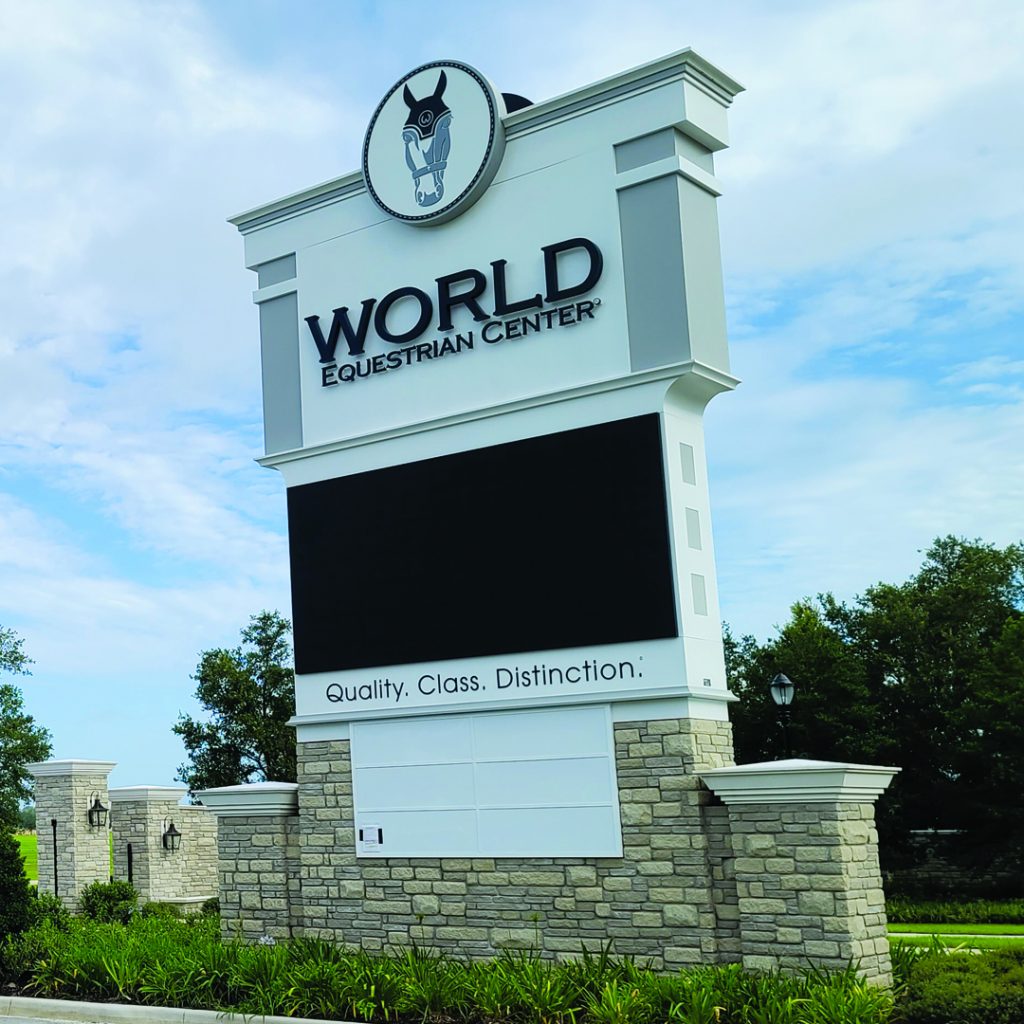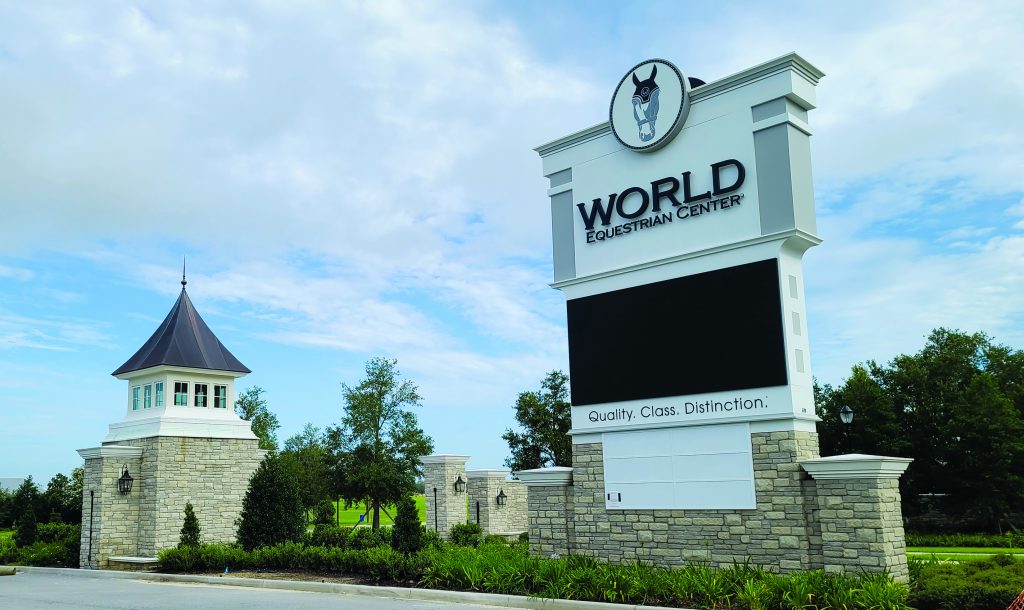Negotiations for WEC to hook up to city fall apart

 After nearly two years of negotiations, a deal between Marion County and the City of Ocala aimed at connecting the new World Equestrian Center to the city’s sewage system collapsed this week because the two sides could not agree on the price.
After nearly two years of negotiations, a deal between Marion County and the City of Ocala aimed at connecting the new World Equestrian Center to the city’s sewage system collapsed this week because the two sides could not agree on the price.
The County Commission voted on Tuesday to reject the city’s offer, saying the $3.14 per cubic feet price tag proposed by the city was just too much. The county had proposed paying the city $2.50 per cubic feet (pcf).
“The only thing we disagreed on was the price,” said Ken Whitehead, assistant city manager. “It was a showstopper.”
Whitehead said negotiations were amicable and the county’s request to hook into the city’s Water Reclamation Facility 3 , or WRF 3, at the municipal airport seemed to make sense for both sides. The city has plenty of capacity and WEC will need 250,000 gallons of sewage capacity initially when it opens.
The plan was to hook up to WRF 3 and run 3.5 miles of pipe from the airport to WEC. But once the city crunched the numbers, Whitehead said it was apparent that it could not do the deal for less than $3.14 pcf. At Tuesday’s Ocala City Council meeting, Rusella Bowes-Johnson, assistant director of the city Water Resources Department, said that accepting the $2.50 rate proposed by the county would mean raising water rates to the city’s existing customers to subsidize the project. Council members said that was unacceptable.
Whitehead said the $3.14 city price would only cover the city’s costs to take on WEC and there was no appetite among the city staff or, ultimately, council members to increase the rates of city residents to help pay for the WEC tie-in. Yet, he expressed disappointment in the final result.
“It was a great effort,” he said. “I’m disappointed we couldn’t get there.”
At the county meeting Tuesday, county Utilities Director Jody Kirkman said the county could expand its existing wastewater treatment plant at Golden Ocala, adjacent to WEC, for $18.7 million. To pay for it, he said the county could apply to the State Revolving Fund for an $18.4 million no-interest loan that could be paid back over 20 years.
While the expansion of the Golden Ocala plant will serve the immediate needs of the development, David Tillman, WEC’s engineer on the project, said it would have to be expanded again in about five years. Nonetheless, Kirkman said he believed walking away from the city and undertaking an expansion of the county’s existing plant was the best deal for the county.
Tillman said the joint project would have been “beneficial to the city and the county.”
This is not the first time there has been failed city-county negotiations over WRF 3. Back at the beginning of the century when the city was getting ready to build WRF 3, it invited the county to partner with it, as growth planners were saying U.S. 27 would be the Marion County’s next big growth corridor. The county turned down the offer. About halfway through the project, the city once again offered the county a partnership in the city third and newest water treatment facility. Again, the county refused the offer, and the city proceeded to build WRF 3 itself.





